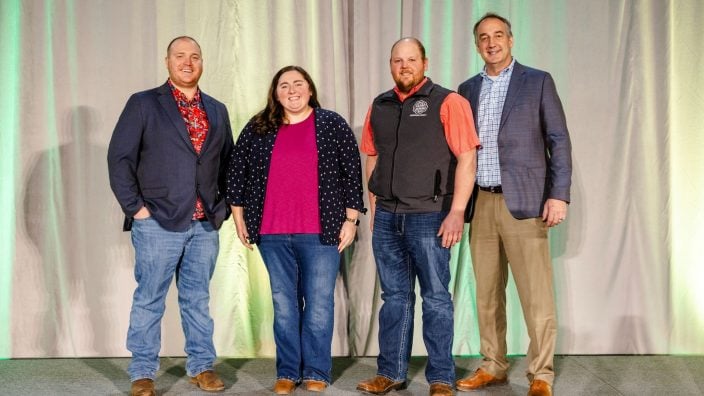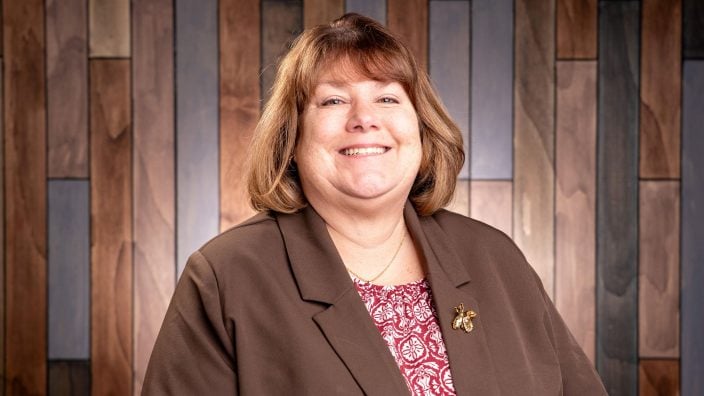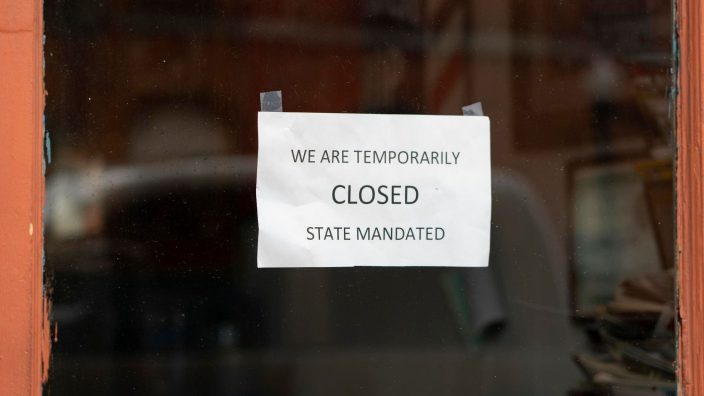Applications for Ohio Farm Bureau Health Plans now available
Members have three ways to apply: contacting a certified agent, calling 833-468-4280 or visiting ohiofarmbureauhealthplans.org.
Read MoreTo date, Ohio has borrowed $1.46 billion from the federal government to cover the state’s unemployment compensation costs, an unusually high tab that has been run up quickly due to the impacts of COVID-19.
Typically, employers foot the bill for this loan through the Federal Unemployment Tax Act (FUTA), which is used to pay for the federal administration of unemployment to provide funding for loans to states that have exhausted their unemployment system during times of high unemployment.
Ohio Farm Bureau joined together with other business industry leaders to bring awareness to the issue and asked the DeWine administration to look for ways to use resources from the American Rescue Plan to relieve already struggling Ohio employers from the burden of a looming IOU to the federal government.
To address this concern, Gov. Mike DeWine recommended to the General Assembly that Ohio use a portion of its federal COVID relief and recovery dollars to pay off the unemployment insurance loan.
“This loan was caused by the global pandemic, and paying it off now will free Ohio employers from this burden so they can instead focus on getting employees across our state back to work.,” DeWine said. “This will help small businesses owners and employees, and I look forward to working with our partners in the General Assembly on legislation to pay off the loan.”
If the state doesn’t select this method and the loan remains outstanding, Ohio Farm Bureau’s Director of State Policy Tony Seegers said every year the loan is outstanding, the FUTA tax credit is reduced by .3%, meaning Ohio’s employers pay an increasing amount, eventually reaching the full 6%, which equates to $420 per employee.
“For our members who are employers that pay the federal unemployment tax, using COVID relief funds for this loan gives them one less thing to worry about,” Seegers said. “To be frank, for those employers who are hanging on by a thread, this could be what makes or breaks their business from getting through this crisis, and we need as many businesses to succeed as possible.”
Ohio’s definition of agricultural employer is similar to that of the federal government’s definition. In the case of agricultural labor, the term “employer” means any person who paid wages of $20,000 or more for agricultural labor during any calendar quarter in the calendar year or the preceding calendar year, or employed at least 10 individuals in employment in agricultural labor for some portion of a day in each of the 20 different calendar weeks, in either the current or preceding calendar year whether or not the same individual was in employment in each day.
The DeWine administration emphasized that using federal dollars strategically to shore up Ohio’s unemployment system will also contribute to Ohio’s year of recovery.


Members have three ways to apply: contacting a certified agent, calling 833-468-4280 or visiting ohiofarmbureauhealthplans.org.
Read More

Legacy nutrient deductions enable new farmland owners to claim deductions on the nutrients within the soil on which healthy crops depend.
Read More

Farmers, agribusinesses and community members are encouraged to nominate their local fire departments for Nationwide’s Nominate Your Fire Department Contest through April 30.
Read More

Introduced by Sen. Paula Hicks-Hudson, SB 120 would establish the Urban Farmer Youth Initiative Pilot Program.
Read More

Gases, vapors, and fumes can all create risk. How can we measure and protect ourselves from them?
Read More

The Ohio Farm Bureau’s Young Agricultural Professionals State Committee has named its 2026 leadership and the individuals who will be serving on the state committee for 2026-2028.
Read More

The Ohio Farm Bureau Foundation has multiple scholarships available to Ohio students from rural, suburban and urban communities who are pursuing degrees with a connection to the agricultural industry.
Read More

With 100% bonus depreciation now permanent, farmers can deduct the full cost of a new agricultural building in the year it’s placed in service.
Read More

Lincoln Deitrick was named the Outstanding Young Farmer, Denver Davis won the Excellence in Agriculture Award, and Margaret Houts won the Discussion Meet.
Read More

Michelle Downing of Franklin County has been named finance director of county operations for Ohio Farm Bureau.
Read More